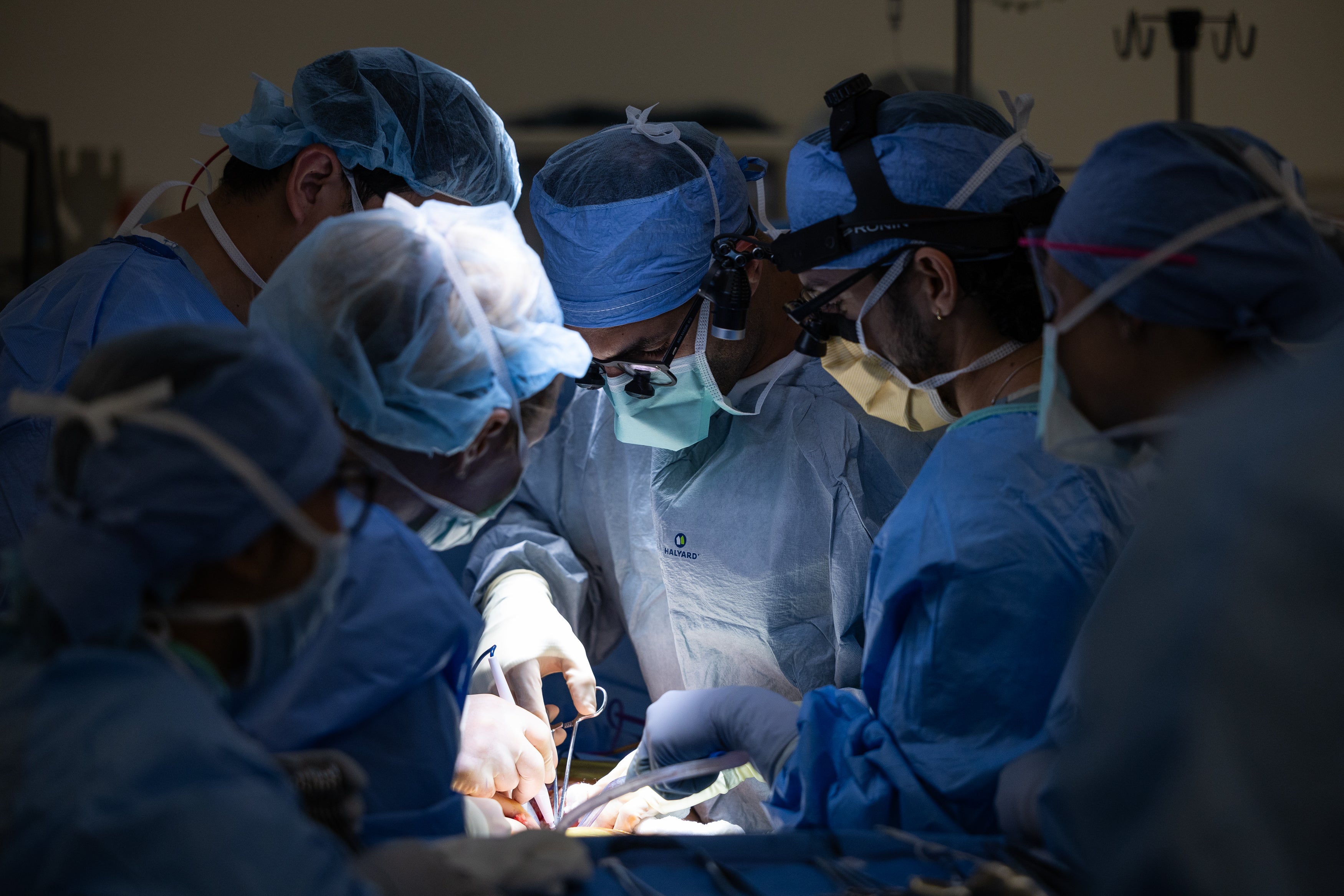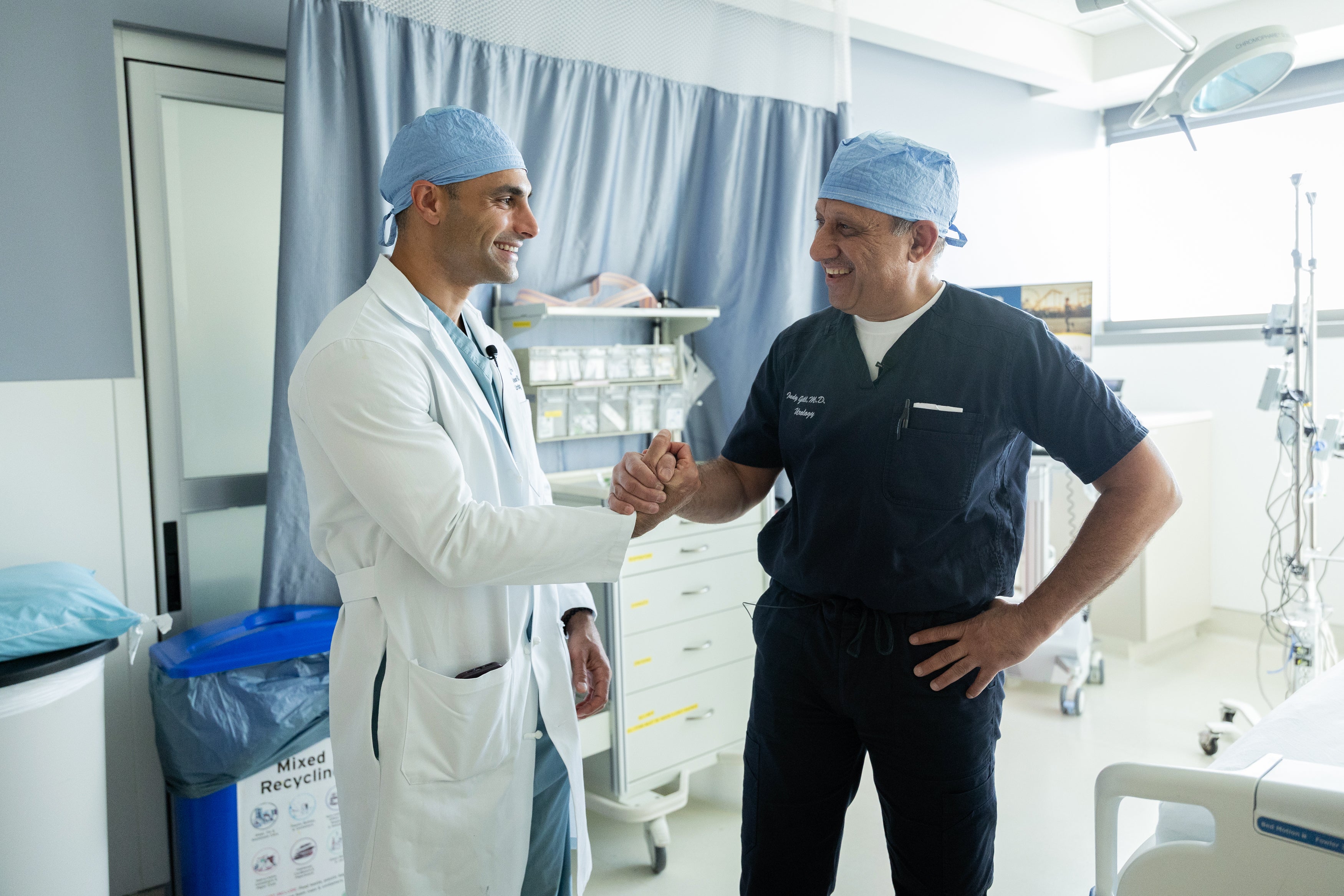ARTICLE AD BOX
Surgeons have performed the world’s first-ever human bladder transplant – calling it a “historic” operation that has the potential to change the lives of millions patients with bladder diseases.
For the first bladder transplant patient Oscar Larrainzar, after seven years on dialysis with no kidneys and a barely functioning bladder, the procedure was a success - with no dialysis needed post-op.
“My hope is to have a better life,” Mr Larrainzar said. “I'm still 42 and I have kids, I would like to see them grow so as much as I can have a better life, normal life, in the best possible way, that’s what I’m hoping for.”
In a joint effort between Keck Medicine of USC and UCLA Health, surgeons performed the groundbreaking surgery on May 4, and the patient is now recovering well, the experts said.
Dr Inderbir Gill, the founding executive director of USC Urology, said: “This surgery is a historic moment in medicine and stands to impact how we manage carefully selected patients with highly symptomatic ‘terminal’ bladders that are no longer functioning.
“Transplantation is a lifesaving and life-enhancing treatment option for many conditions affecting major organs, and now the bladder can be added to the list.”

Dr Gill worked with UCLA urologic transplant surgeon Nima Nassiri for years to develop the new and complex surgical technique, which involved transplanting a kidney, followed by a bladder, into the patient. The whole procedure lasted eight hours, the experts said.
“This first attempt at bladder transplantation has been over four years in the making,” Nassiri said. “For the appropriately selected patient, it is exciting to be able to offer a new potential option.”
Mr Larrainzar had been on dialysis for seven years after losing most of his bladder when a tumour was removed. Both of his kidneys had also been removed due to renal cancer.
Dr Nassiri said following the surgery, Mr Larrainzar’s kidney immediately began producing urine.
“There was no need for any dialysis after surgery, and the urine drained properly into the new bladder,” he said.
Dr Gill said, despite the complexity of the case, everything went according to plan.
“The patient is doing well, and we are satisfied with his clinical progress to date,” he said.

Millions of people around the world live with a degree of bladder disease or dysfunction, the urologists said, and current treatment for severe so-called terminal cases in which their bladders can stop functioning can involve creating a new bladder with part of the patient’s intestine.
Dr Nassiri said while those surgeries can help, they also come with short and long-term risks that can have ongoing effects on the patients’ health.
“A bladder transplant, on the other hand, results in a more normal urinary reservoir, and may circumvent some short- and long-term issues associated with using the intestine,” he said.
The experts acknowledged that because it is a first-of-its-kind procedure, there are many unknowns, including how well the bladder will function over time.
“Despite the unknowns, our goal is to understand if bladder transplantation can help patients with severely compromised bladders lead healthier lives,” Dr Gill said.
The surgery was performed as part of a UCLA clinical trial, and the urologists hope to perform more of the pioneering surgeries in the near future.









 English (US) ·
English (US) ·